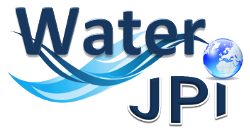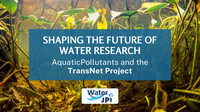Shaping the Future of Water Research: AquaticPollutants ERA-NET and the TransNet Project
In a collaborative effort to tackle water pollution, the Joint Programming Initiatives (JPIs) on Water, Oceans, and Antimicrobial Resistance (AMR) launched two strategic calls in 2020:
- Joint Transnational Call (JTC) – focusing on measuring, evaluating, and addressing the risks posed by pollutants and pathogens in water resources.
- Transfer Project Call – aimed at maximizing the impact and knowledge transfer of research results generated under the JTC, ensuring their integration into public policy, industry, and administrative sectors.
AquaticPollutantsTransNet: A Strategic Initiative
Selected for funding under the Transfer Project Call, AquaticPollutantsTransNet was launched in 2021. The project unites partners from France (BRGM and ACTeon), Germany (DECHEMA), and Sweden (IVL Swedish Environmental Research Institute) to enhance the knowledge transfer capacity of JTC-funded projects by:
- Identifying key stakeholders and addressing their knowledge gaps.
- Developing innovative approaches for effective knowledge exchange.
- Strengthening collaboration and creating synergies among AquaticPollutants JTC projects.
- Improving the dissemination of research results to relevant stakeholders.
- Implementing diverse and strategic dissemination and exploitation channels.
A Collaborative Funding Model
The Transfer Project Call, launched in February 2020 with a €1 million budget, was funded by the Swedish Research Council (SRC), the German Federal Ministry of Education and Research (BMBF), and the French National Research Agency (ANR). This initiative represents a significant step toward enhancing European research collaboration and ensuring that scientific advancements reach policymakers, industries, and communities.
Key Objectives and Two-Phase Approach
Phase One
- Stakeholder Identification: Pinpoint key stakeholders and their knowledge needs concerning aquatic pollutants.
- Knowledge Transfer Tools: Develop innovative tools to transfer scientific findings to policymakers, the public, and sectors such as health, agriculture, and industry.
Phase Two
- Collaboration and Synergies: Foster partnerships among AquaticPollutants projects and strengthen stakeholder engagement.
- Targeted Dissemination: Deploy tailored communication strategies and innovative dissemination channels, including expert groups, political forums, and industry networks, to ensure the adoption of research findings by relevant sectors.
Driving Societal Impact in the future
AquaticPollutantsTransNet aims to elevate public awareness of aquatic pollution, enhance societal understanding of its impacts, and promote the adoption of sustainable water management practices. By connecting science with policy and practice, this project is poised to create lasting change in how Europe manages its water resources and addresses pollution challenges.
The results from the AquaticPollutants project will play a pivotal role in shaping the next call for proposals of the Water4All programme. AquaticPollutants has generated critical insights into the impacts of emerging contaminants, microbial pollution, and waterborne pathogens on aquatic ecosystems and public health. These findings provide a robust scientific foundation for addressing knowledge gaps and setting priorities in the upcoming Water4All call. By integrating lessons learned from AquaticPollutants, Water4All will ensure that its focus aligns with the most pressing challenges in water management, particularly those affecting ecosystem resilience and health. Moreover, the multidisciplinary approach and stakeholder engagement strategies pioneered by AquaticPollutants will inform the design of the Water4All call, fostering innovative, actionable solutions that address both water quality and broader ecosystem health challenges. More detailed information on the next Water4All’s call will become available in July 2025.

